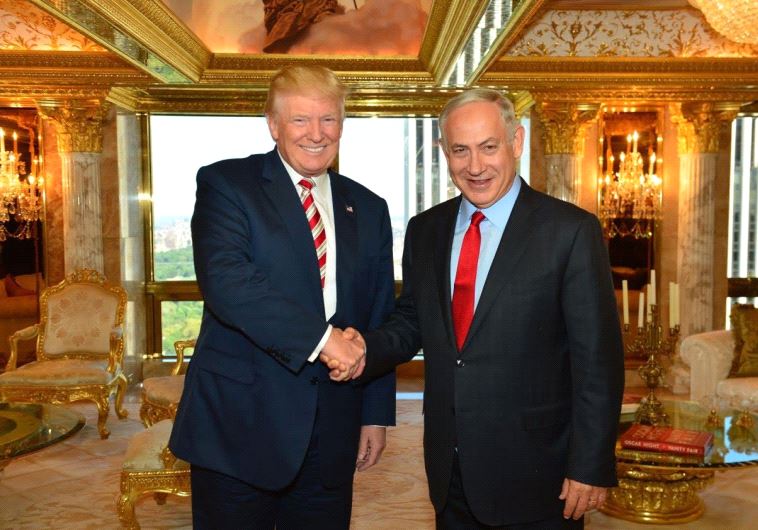Bennett: If Trump and Netanyahu discuss Palestinian state the 'earth will shake'
Sources close to Netanyahu responded by calling the statement and others like it from the Right unhelpful, saying it could harm the meeting.
 Donald Trump and Benjamin Netanyahu meet at the Trump tower(photo credit: KOBI GIDON / GPO)Updated:
Donald Trump and Benjamin Netanyahu meet at the Trump tower(photo credit: KOBI GIDON / GPO)Updated: